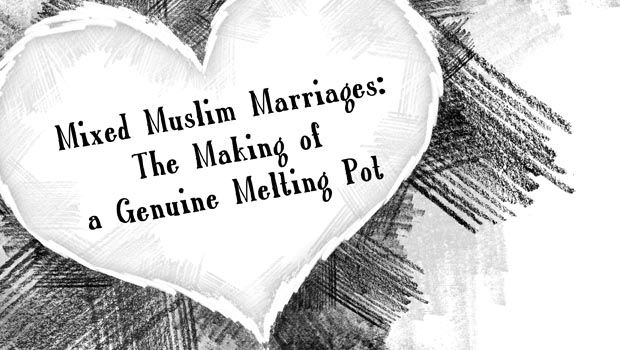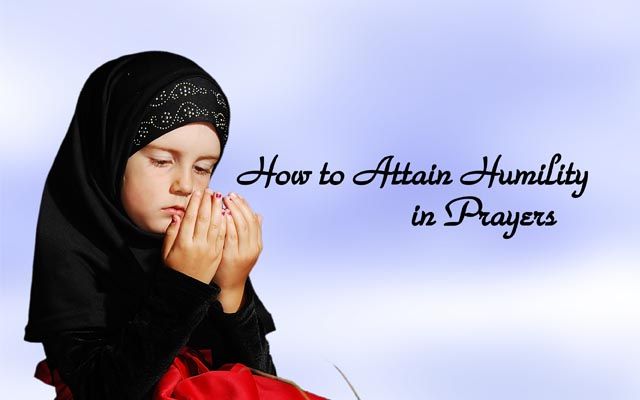When I am invited to speak on the topic of marriage, I often open with reference to the following familiar ayah from Surat Ar-Rum: “And of His signs is that He created for you from amongst yourselves spouses that you may find tranquility in them; and He placed between you affection and love. Indeed in that is a sign for people who reflect” (Quran 30:21). I usually follow with mention of how many wedding invitations carry this verse printed so beautifully on the front of the card, but that instead of reflecting upon the profound meaning of the ayah, we tend to look instead for what we see as “important information” such as the venue and the meal choice. The truth is that in this ayah there is so much wisdom regarding the marriage relationship, if only we take the time to reflect upon it.
“All mankind is from Adam and Eve; an Arab has no superiority over a non-Arab nor a non-Arab any superiority over an Arab; also a white has no superiority over black nor a black any superiority over a white except by piety and good action. Learn that every Muslim is a brother to every Muslim and that the Muslims constitute one brotherhood. Nothing shall be legitimate to a Muslim which belongs to a fellow Muslim unless it was given freely and willingly. Do not, therefore, do injustice to yourselves.”
The verse speaks of the marriage relationship as a means of finding rest and tranquility in the heartfelt relation to another soul, and while the verse clearly denotes affection and love as the proverbial bonding between spouses, we should avoid falling for the exaggerated portrayal of infatuated-based love by Hollywood and Bollywood. The ayah also suggests that the love within marriage, built upon caring, mercy, and Islamic devotion, goes beyond the love that is grounded in, but also bounded by, this world. The marriage relationship thus is a mutual, shared journey towards a much higher spiritual love. The verse closes with the reminder that marriage itself is a heavenly sign and that we should reflect and marvel upon the divinely bestowed connection that makes this union functional, strong, and profound. The mere idea of taking two individuals from separate families, with differing backgrounds, life experiences, and personalities, and bringing them together to form a new bond of mutual devotion should be cause for reflection and awe. The operative idea here is that two different people join together, unite for the sake of Allah (swt), ready to weave a new tapestry of marriage and family life.
Marrying Someone of a Different Background
Yet, for many Muslims the idea of marrying someone from a different culture, race, or ethnicity is almost inconceivable. An exploration of the Quran on the topic of marriage shows that this fear of marrying outside our cultures is unfounded to say the very least. For example, the verses that precede and follow the above verse are revealing, as pointed out in a post by Shaykh Omar Suleiman. The verse before the “marriage verse” tells us: “And of His signs is that He created you from dust; then suddenly you were human beings dispersing throughout the earth” (30:20). The ayah that follows the “marriage verse” states: “And of His signs is the creation of the heavens and the earth and the diversity of your languages and your colors. Indeed in that are signs for people of knowledge” (30:22). Shaykh Omar comments that the placement of the verses shows that marriage, likewise the human diversity that is signified by “colors” and “languages,” are blessings from Allah (swt), and thus, by inference, a straightforward condemnation of ethnocentrism and racism. He notes about the placement, “Coincidence? I think not. The sequence of the verses flows with divine wisdom.”
Along with these beautiful verses of the Quran, we should also recall the words of the Prophet (pbuh) in his last sermon: “All mankind is from Adam and Eve; an Arab has no superiority over a non-Arab nor a non-Arab any superiority over an Arab; also a white has no superiority over black nor a black any superiority over a white except by piety and good action. Learn that every Muslim is a brother to every Muslim and that the Muslims constitute one brotherhood. Nothing shall be legitimate to a Muslim which belongs to a fellow Muslim unless it was given freely and willingly. Do not, therefore, do injustice to yourselves.”
We can clearly see a condemnation of any form of racism or belittling based on race, culture, or ethnicity. If our deen unequivocally disapproves of racism and xenophobia, then where does the apprehension about mixed Muslim marriages stem from?
Typical Objections to a Mixed Marriage
Below are the top ten objections to mixed Muslim marriages that are commonly cited, typically from genuinely concerned parents:
You won’t speak the same language
Your children won’t be raised the same way your culture dictates
You won’t be able to keep your culture intact within the marriage
Your spouse won’t like your cultural foods
Your temperaments won’t match because your backgrounds are different
Your children will end up confused about their heritage
Your in-laws will treat you poorly because they will see you as an outsider
Your traditions will be lost and gatherings will have no meaning
Your wedding and every major holiday will be a jumble of clashing outfits
Putting Things in Perspective
Now if we deconstruct each of these nine misgivings, we can begin to see beyond the negatives to a clearer and more compelling perspective:
Living in the Western world, chances are we are all speaking English. If not, there’s always Rosetta Stone. The couple can embark together on the journey of learning a new language or learning the native tongue of the other spouse. The language of the Quran can of course be a powerful base connector as well. And the language of love is unlimited in its expression.
The way we raise our children will surely differ from the way we were raised. Each generation can build upon what is good and effective from their parents’ generation and the culture in general, and discard what is counterproductive or ineffective. In addition, taking the best child-rearing practices from both spouses’ cultures can be a rich trove of wisdom. Our techniques of child rearing should evolve to fit the society we live in while maintaining the important things such as faith, character, morality, and manners.
Culture is derived from the way we act, the way we live, our preferences and our connections. The set of rules that helps define our lives from a cultural perspective are not dictates set in stone. They are fluid and flexible and meant to evolve with time, people, and experiences.
If you love your biryani, samosas, and chicken tikka masala and are marrying someone who is used to making falafel or burritos, then it’s time to get cooking. Spouses should share with one another their traditional foods in a spirit of open-mindedness and adventure. What a great connection a couple can have through sharing and enjoying together the foods they love and grew up with.
Marriage is a large leap of faith. Regardless of your ethnicity, race, or culture, each spouse’s temperament is a repository of nature, nurture, and experience that awaits knowing by a loving partner in life. The healthiest outlook is one which sees the spouse’s personality, character, and the totality of personal traits as an exciting source of mutual discovery, increasing self-awareness, and deeper understanding. All in all, it takes a great deal of adjustment, tolerance, and effort to make a marriage work, regardless of same or different backgrounds.
Our children will take on the attitudes of their parents toward cultural diversity. If the spouses are on the same page, seeing their cultural variance and distinction as a blessing and positive challenge toward greater maturity and enlightened interaction, so will the children. That potential is not something to fear but to celebrate!
In-laws’ treatment of the new spouse does not hinge upon the cultural, racial, or ethnic background of that person. It instead depends on the in-laws’ worldview, maturity, and respect of the dignity and worth of each individual, including that of the son or daughter-in-law. That is simply adherence to the Islamic teachings and should be ascertained before marriage.
Traditions made within your family are the ones that will be passed on. Create your own traditions with your children. Bring the best from each of your backgrounds into the mix, planted in the rich loam of Islamic culture – the truest culture – and watch the beauty that will blossom from there.
Whether you wear red shalwar kameez or a white gown at your wedding or any other holiday event does not, should not, matter. What matters is the level of respect that is brought to the approach to different cultures and the acceptance of all that makes us beautifully different.
Bringing Hearts Together
In the end, if we are to practice what we profess to believe, then we must open ourselves up to understanding the ayah from Surat Al-Hujarat that states: “O mankind, indeed We have created you from male and female and made you peoples and tribes that you may know one another. Indeed, the most noble of you in the sight of Allah is the most righteous of you. Indeed, Allah is Knowing and Acquainted” (49:13).
We are meant to come together, not to push away or pass judgment on others. We were meant to connect, to find what makes us similar, to focus on these commonalities and appreciate the differences. Just because we are different doesn’t mean that we are any better or any worse than one another. The weakness in our ummah comes from our divisions, and strength comes from our unity and solidarity. Imagine a blizzard made up of millions of snowflakes – each complex snow crystal is unique, different from every other one. Alone, a snowflake melts and disappears in an instant, but together they form a powerful snowstorm. In Surat Al-e-Imran, Allah (swt) reminds us: “And hold firmly to the rope of Allah all together and do not become divided. And remember the favor of Allah upon you – when you were enemies and He brought your hearts together and you became, by His favor, brothers. And you were on the edge of a pit of the Fire, and He saved you from it. Thus does Allah make clear to you His verses that you may be guided.” (3:103)
Allah (swt) can bring our hearts together, whether in our marriages or in our Islamic centers. It’s time we lose our shackles of hesitancy towards mixed Muslim marriages and embrace the diversity that exists within our communities. This can make us stronger as families and as an ummah if nurtured and supported. When you find the righteous spouse, follow the deen and take the leap if compatibility of personality exists. Don’t shy away from someone just because their culture, ethnicity, or race may differ from yours. That marriage connection may yield greater richness and vitality because the cultural differences, though united through the medium and influence of Islamic refinement, still remain distinct and beautiful weaves in the tapesty of marriage and family.





